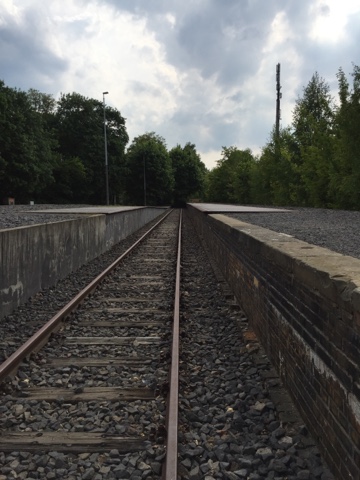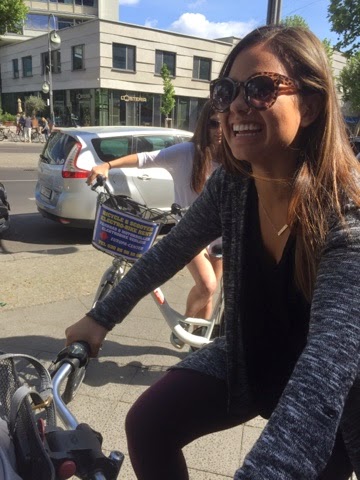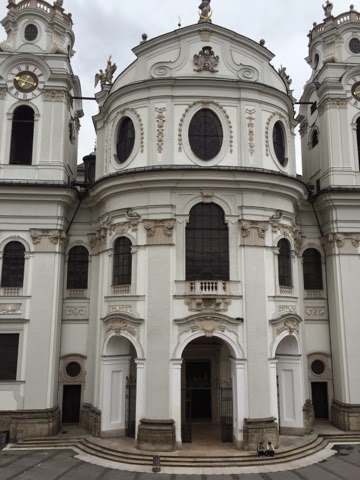Well, no part of Germany was left untouched by the Nazis. Here in Wannsee, the party took over a home on the lake. They used it as a guest house of sorts for their out of town guests. It was beautiful and private, but still just a few stops on the train from Berlin. Here, some of the high ranking Nazi party members held a meeting to discuss the "final solution to the Jewish question". It seems that every place where some sort of evil was thought up or took place has a surreal sort of beauty as well. Maybe it's a balance for the ugliness that transpired there, but more likely it's a beautiful place simply made uglier by its past.
After our workshop here with a lovely instructor, he brought us a few train stops closer to the city. Here, he showed us the station where most of Berlin's Jewish citizens were deported to concentration and death camps. It's dotted with memorials, but I was most deeply moved by the preservation of the train tracks itself. Along the sides of the platform, dates, numbers of people and destinations are recorded. Nothing could make it feel more real than standing at the last spot most of the people persecuted saw of their home, Berlin, and staring at those numbers.
After those heavy moments on Platform 17, we boarded our train back into the city and switched gears quite a bit.
Professor Bormann's friend, the same who had the entire group over for a welcome party to Berlin, works at the Reichstag. He gave us a fantastic private tour of the German Parliament as the sun set.
Today, we had another fantastic seminar at the Anne Frank Center of Berlin. Of course the Franks never lived in Berlin, moving from Frankfurt to Amsterdam when Anne was just four, but I was pleased to see the Anne Frank Center in the old Jewish neighborhood of Berlin. Our group leader was named Joscha, a student whom we were closer in age with than any other guide we've had before. The exhibit itself was fantastic, but I felt as if the most valuable part of the experience was speaking with Joscha, who was born in 1990, the year of reunification of Berlin. We might've asked very forward questions, but our curiosity about the perspective of our generation on the Holocaust was apparent and he told us quite openly about his sort of guilty feelings toward this time period. Of course this sentiment is not easily explained, he told us, because his generation and he personally had nothing to do with the Holocaust, and yet he told us of his need to spend a year in Israel volunteering with Holocaust survivors and his work at the Center also spoke to this feeling. Joscha made it clear that he is not the average German student, and that many of his generation are simply fed up with being blamed for something that happened decades before their birth. I was just very happy to be given the opportunity to speak with someone of relatively the same age as myself, who has grown up here and experiences on a daily basis how the Holocaust still affects Germany and young people.
After the seminar, we were finished with our programming for Berlin. Erin, Jameson and I spent a little time walking around the old Jewish neighborhood, which Jameson and I had seen once before but Erin had unfortunately missed. It's beautiful, but everywhere you turn you can see gaps in history, places where people's lives were uprooted and not allowed to run their course.
We spent the rest of the afternoon resting while Jameson headed to her museums. Tomorrow we will move on to Poland, which will certainly introduce a whole new set of topics to our studies. In preparation, we caught up on laundry, essay writing, and reading following our last dinner in our lovely Berlin neighborhood. Auf wiedersehen, Berlin, see you in eleven days.

















































